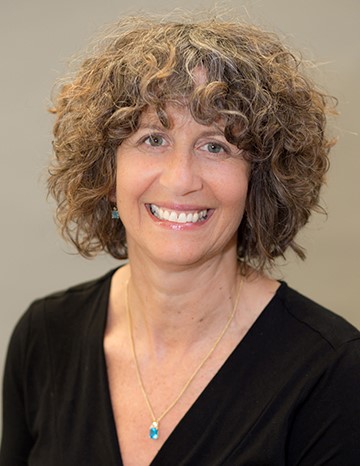I keep on telling people that the retirement plan business is a relationship driven business. I don’t think in the 18 years I’ve bee in this business, I have met someone who understands that more than Sheree Tallerman. Every minute I worked with her was an absolute pleasure and when you work in the office of a third party administrator with other professionals, that’s a hard thing to say. She’s proof that you can be a nice and authentic in this business and be successful.
Q: How did you start in the retirement plan business?
A: I consider myself very fortunate to have found the retirement plan business– or I should say it found me! I was transferring from UC Santa Barbara down to UCLA. My cousin asked if I wanted a job as an administration assistant in an accounting firm in Century City. There were three separate companies sharing that office: the accounting firm, a law firm, and a pension administration firm. I was filing tax management guides (the ones where you had to replace the pages with “comb” guides) when the owner of the pension firm asked if I was interested in working for his company. He said he’d pay me ten dollars per hour. I was making five dollars with the accounting firm, so naturally I jumped at the chance. That was in 1986.
Q: We first met when you were the top salesperson at a New York based TPA. Over the past 14 years, what has been the big difference you’ve seen now in your role, running your own TPA?
A: Has it really been 14 years? WOW. When I started in the business I was working for a traditional TPA – balance forward, trustee directed. When I moved to New York in 1997 I learned a whole different skillset – daily valuation, open architecture. Those types of plan designs were really new and more prevalent on the east coast. But I would say my success doesn’t have to do with plan design or fancy statistics—it’s mostly about people and relationships. I’m a very good listener and relationship developer. People want to work with someone they like and trust. Remember when we would actually pick up the phone and call someone? That’s been lost in today’s business relationships—now it’s all about emailing and texting. There’s been a huge change in how we communicate, but I believe people still value that personal connection.
Q: How has fee disclosure impacted your TPA business?
A: It hasn’t. I was trained by a successful New York TPA in the area of open-architecture, which by definition is all about full disclosure and transparency. That’s our firm’s foundation.
Q: Do you believe that revenue sharing is going to be a thing of the past?
A: Right now, the current industry practice is for revenue sharing to offset fees. In the small-plan marketplace, that means there’s enough “credit” to pay the custodial fees. I suspect in the future there may be regulations that make the playing field more even through fee equalization. Like the fiduciary rules, I think that will take a very long time to materialize.
Q: How do you think the fiduciary rule will impact the retirement plan business?
A: This has been more of an issue for the brokerage / insurance community vs. the fee-based registered investment advisors or independent TPA firms. And with a new president about to be inaugurated it’s hard to know what’s going to happen. For now, I’m watching and listening and if I say anything more I’ll get in trouble!!
Q: Do you think plan sponsors have a better understanding of what a TPA does, and a better understanding of why their TPA selection matters?
A: TPAs are in the very unusual position, since they’re part accountant, part lawyer, part advisor, part physician, part parent! When we’re setting up plans, we’re the heroes because we’re generating large tax-deductible contributions. As time goes on, though, people forget the value of the service we provide. They lose sight of that as things settle into compliance mode.
When my business partner, Tony Delfino and I started PlanPerfect, we were very clear in our business plan that we were not interested in building a giant practice (“been there done that”) but rather build a boutique firm where we as owners would stay in direct touch with our clientele. We have long term relationships with the majority of our clients who do business with us. Tony used to say, “we provide “Bentley” services at “Mercedes” prices.
Generally when people bring up the subject of fees, we go away because we are not in the bidding business. People work with us because of the services we seem to offer year after year. We solve problems for people. We answer a lot of questions for our referral sources.
Q: A big chunk of your time as a TPA salesperson was working with advisors and you do still do that with your own TPA. Do you believe advisors are better prepared today in serving as a retirement plan advisor?
A: On the West Coast, about eighty percent of our business comes from Business Managers and CPA’s. The other twenty percent comes from investment advisors, both fee-based and commissioned. Strangely, when I was working in NY it was the other way around: most of our business came from the investment-advisor community.
Honestly, there are a lot of training programs, designations, and credentialing that’s meant to help advisors be better prepared. For the ones who are really IN this business and not “one-hit wonders,” they are great and get it: they are on top of the rules and regs. For the others, there’s a lot of hand-holding and advising, in which case we come “advisers to the advisors.”
Q: When reviewing potential retirement plan clients, what problem do you come up against most often?
A: A common problem is that clients and their advisors are confused about the difference between “passive” vs. “earned” income. Passive income incomes from sources like dividends, interest, rents, whereas earned income is subject to payroll tax (FICA. Social Security, and Medicare.) Pension and profit sharing contributions are based on earned income not passive.
Q: As a TPA, are you concerned that there’s a race to the bottom in fees? Or do you think that people understand the value of a good TPA?
A: There’s a lid for every pot and a TPA for every type of plan out there. But if you’re just shopping on price, you’re not understanding the value of the service we provide. CPAs usually understand that value, but sometimes their client’s don’t.
Q: Where can people find out more about PlanPerfect?
A: You can call me directly on my cell at 917-828-5888 or sheree@planperfectretirement.com. And I invite you to visit our website at www.planperfectretirement.com.







